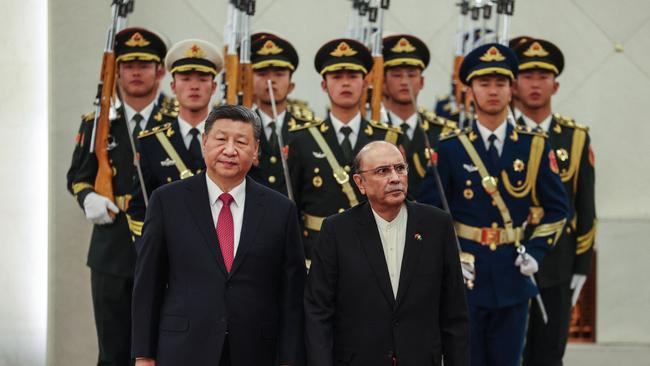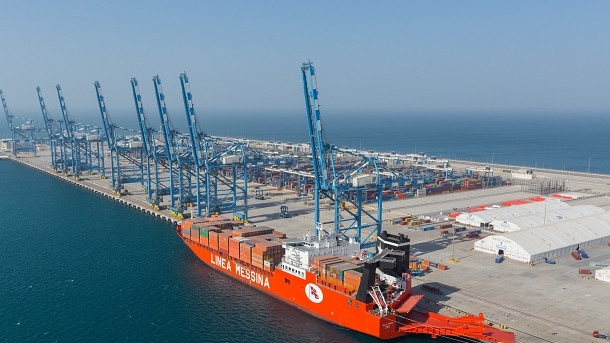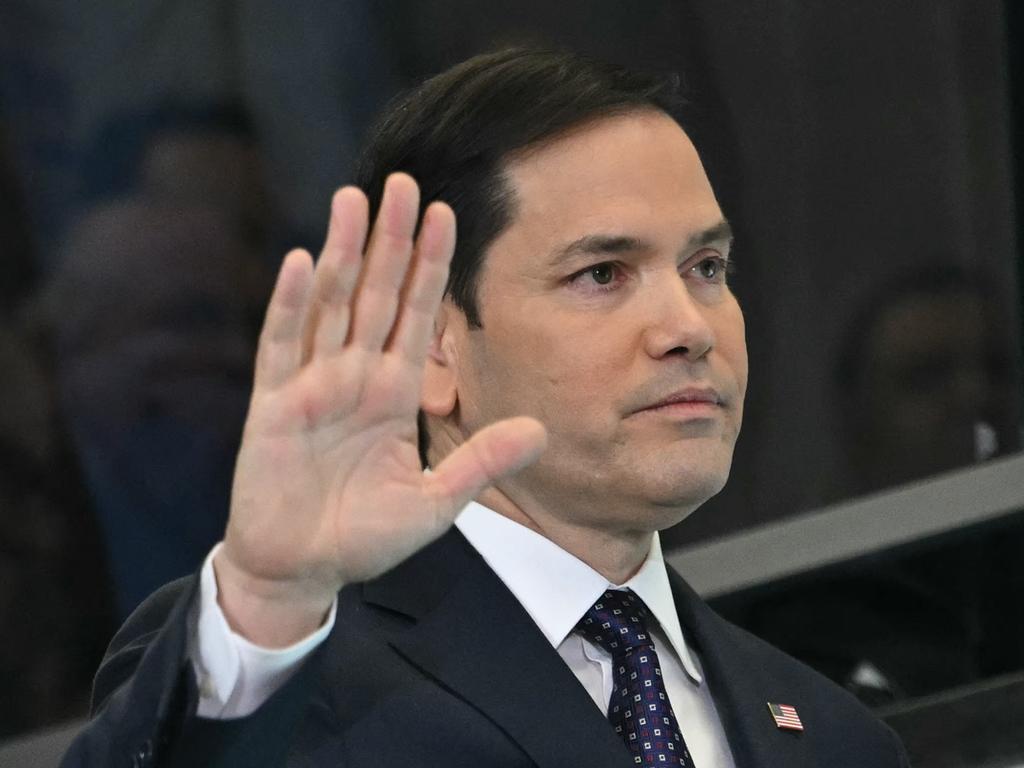Donald Trump’s development aid retreat a Belt and Road boon for China
With US soft power in full flight from the region, Beijing is moving quickly on strategic opportunities across the Asia-Pacific.

As Pakistan and China toasted the first airplane to land at the new Gwadar International Airport – the mother of all Belt and Road Initiative white elephants – late last month, US development assistance was in full flight from the region under the Trump administration’s aid freeze.
The symbolism was hard to ignore, notwithstanding deep concerns Pakistan is the latest victim of China’s debt-trap diplomacy in which poor nations unable to meet unsustainable debt loads become captive to coercive leverage.
Islamabad’s debt to China has spiralled from $US4bn ($6.4bn) to $US30bn ($47.9bn) in a decade under the China Pakistan Economic Corridor (CPEC) – a flagship BRI project that aims to connect China’s Xinjiang to the markets of the Middle East, Africa and central Asia through Pakistan’s insurgency-racked Balochistan on the Arabian Sea.
Gwadar airport is — preposterously — now the largest in the country despite the heightened security risks in Balochistan posed by domestic separatist insurgents and ISIS terrorists.
“It makes no sense from Pakistan’s perspective and raises questions as to why China would need or want this,” says Michael Kugelman, a South Asia security analyst with Washington’s Woodrow Wilson Centre.
“For Pakistan it would be better to strengthen existing infrastructure. But Beijing would not be willing to invest this much capital in a project if it was not going to serve its most critical national and security interests.”
The International Monetary Fund estimates at least 30 per cent of Pakistan’s external debt is owed to China at commercial interest rates averaging 3.7 per cent, much of it sunk into infrastructure projects, including a deep sea port on the Arabian Sea in Gwadar that sits largely idle, but which China’s rivals fear could one day host warships.
Cash-strapped Pakistan should be the latest cautionary tale for neighbouring countries about the perils of Chinese investment, after the experience of similarly China debt-burdened Sri Lanka.
Yet with US soft power in retreat, and thousands of development programs across the region thrown into chaos by its catastrophic 90-day foreign aid pause, Beijing is looking more like a feasible alternative for Pakistan’s neighbours.

Bangladesh is the latest to cosy up to Beijing as it seeks alternatives to Washington, now looking increasingly like an unreliable backer.
Only last September, the outgoing Biden administration announced a fresh $US202m in USAid funding for Bangladesh to promote good governance and economic opportunity.
The pledge came soon after the country’s authoritarian former prime minister Sheikh Hasina was ousted in a popular uprising and one of Bangladesh’s most beloved figures, Nobel Peace laureate Muhammad Yunus, agreed to lead an interim government and institute widespread reforms.
With US aid now under a cloud, Mr Yunus is tipped to head to Beijing to negotiate a series of new financial agreements.
“Yunus has been aggressive in recruiting new Chinese aid and investment. He is also seeking loan forgiveness from China and lower interest rates on new Chinese projects in Bangladesh,” Joshua Kurlantzick, a senior fellow for Southeast and South Asia at the US-based Council on Foreign Relations, said this week.
If the US is unperturbed by the effect of its aggressive foreign posture on allies and friends, Dhaka’s growing alignment with Chinese development models and the BRI is being watched with increasing alarm in New Delhi whose influence in Bangladesh has been waning amid tensions due to India’s inertia over Dakha’s request for Mr Hashina’s extradition.
Nepal too is moving closer to Beijing, setting aside previous concerns over the BRI and China’s strategic intentions.
Last December its new prime minister snubbed New Delhi – traditionally the first port of call for all new Nepali leaders – in favour of Beijing where he signed on for 10 new BRI infrastructure projects, two of which will be located in his own electorate.
Beijing first proposed the China Pakistan Economic Corridor in 2013, two years after the US Navy SEALS raid on the secret northwest Pakistan compound of the world’s most wanted terrorist, Osama bin Laden.
China’s accelerated push into nuclear-armed Pakistan lines neatly up with the precipitous decline in the US-Pakistan relationship.
Analysts are now warning more countries are likely to follow Islamabad’s lead as the Trump 2.0 administration’s more transactional, combative foreign posture pushes even traditionally neutral countries into China’s orbit.
“There will be a lot more interest in countries going to China and instances of Beijing approaching them,” says Genevieve Donellon-May, an Asia researcher with the Oxford Global Society.
“I think we will see a lot more activity from China in coming weeks and months, in terms of climate financing, economic development and commercial projects that could be considered a broader part of the BRI.”







To join the conversation, please log in. Don't have an account? Register
Join the conversation, you are commenting as Logout